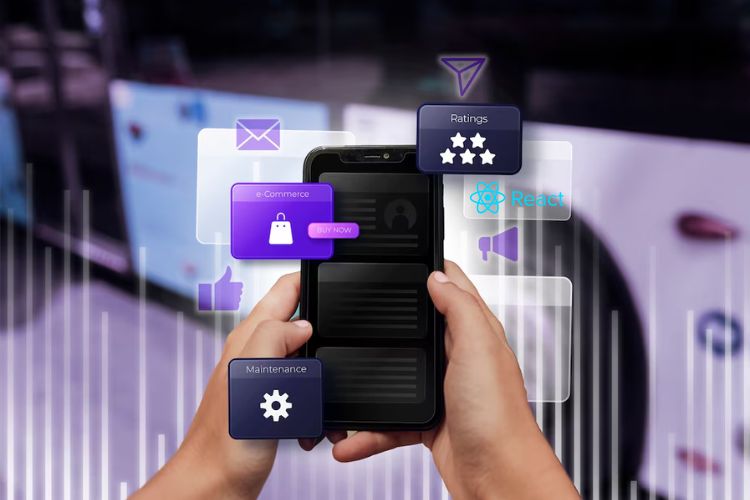
In the age of smartphones and on-demand services, the taxi industry has undergone a seismic shift in the way it operates. Gone are the days of waving down a taxi on the street or waiting endlessly at a taxi stand. The introduction of taxi apps has revolutionized the transportation sector, offering passengers the convenience of booking rides at their fingertips. However, at the heart of this transformation lies one crucial technology: Real-Time GPS Tracking.
Real-Time GPS Tracking: The Backbone of Taxi Apps
Real-Time GPS (Global Positioning System) Tracking is the backbone of modern taxi apps. It is the technology that enables users to not only book a taxi but also track its exact location in real time. This seemingly simple feature has far-reaching implications for both passengers and taxi service providers. In this comprehensive exploration, we’ll delve into the profound importance of real-time GPS tracking in taxi apps, uncovering how it enhances safety, efficiency, and user experience.
Enhancing Safety
Safety is paramount in the world of transportation, and real-time GPS tracking plays a pivotal role in ensuring it. Here’s how:
1. Driver and Passenger Safety:
Real-time tracking allows passengers to share their ride details with loved ones, providing an added layer of security. If a passenger feels uncomfortable during the journey or faces an emergency, their exact location can be quickly pinpointed.
2. Driver Monitoring:
Taxi companies can monitor driver behavior in real time. This includes tracking speed, route adherence, and deviations from the planned route. If a driver veers off course or engages in unsafe driving practices, the company can take immediate action to rectify the situation.
3. Lost and Found:
Real-time GPS data helps passengers retrieve items they may have left behind in a taxi. The precise location of the trip can be determined, making it easier to recover lost belongings.
Optimizing Efficiency
Efficiency is a key driver in the success of any taxi service. Real-time GPS tracking contributes significantly to this efficiency:
1. Route Optimization:
Taxi apps use real-time data to calculate the quickest and most efficient routes. This not only saves time for passengers but also reduces fuel consumption and wear and tear on vehicles, contributing to environmental sustainability.
2. Reducing Idle Time:
Drivers can reduce idle time by strategically positioning themselves based on real-time demand data. This minimizes downtime and maximizes the number of trips they can complete in a day.
3. Dynamic Pricing:
Real-time GPS data allows for dynamic pricing models, where fares can be adjusted based on demand and traffic conditions. This benefits both drivers, who can earn more during peak times, and passengers, who have access to more affordable rates during off-peak hours.
Enhancing User Experience
User experience is a critical factor in the success of any app. Real-time GPS tracking significantly enhances the user experience in taxi apps:
1. Transparency:
Real-time tracking provides passengers with transparency about their ride. They can see when their taxi will arrive, how long the journey will take, and the estimated fare. This transparency builds trust and confidence in the service.
2. Convenience:
Passengers no longer need to wait outside for a taxi to arrive. They can monitor the taxi’s approach from the comfort of their home or office, making the entire process more convenient.
3. Rating and Feedback:
Real-time tracking is often integrated with rating and feedback systems. Passengers can provide immediate feedback based on their real-time experience, allowing taxi companies to maintain high service standards.
Streamlining Operations
For taxi service providers, real-time GPS tracking offers operational benefits:
1. Fleet Management:
Fleet managers can monitor the entire taxi fleet in real time, ensuring that all vehicles are operating efficiently. They can allocate resources based on demand and respond quickly to breakdowns or emergencies.
2. Data Analysis:
The wealth of real-time data generated by GPS tracking allows taxi companies to analyze trends, optimize routes, and make data-driven decisions to improve service quality and profitability.
Compliance and Accountability
Real-time GPS tracking also serves regulatory and accountability purposes:
1. Regulatory Compliance:
Many regions require taxi companies to adhere to specific regulations, such as maximum fares and service quality standards. Real-time GPS tracking helps companies demonstrate compliance with these regulations.
2. Dispute Resolution:
In cases of disputes between passengers and drivers, the precise data provided by real-time tracking can serve as an objective record, helping resolve conflicts fairly.
Conclusion
In summary, the importance of real-time GPS tracking in taxi apps cannot be overstated. It enhances safety, optimizes efficiency, enhances the user experience, streamlines operations, and ensures compliance and accountability. This technology has not only revolutionized the taxi industry but has also set a new standard for convenience, transparency, and reliability in transportation services.
As the digital era continues to unfold, real-time GPS tracking will remain a cornerstone of innovation and progress in the taxi app development landscape. For taxi app development companies, harnessing the power of real-time GPS tracking is not just a feature—it’s a mission to deliver superior services to clients and passengers alike.
So, whether you’re a taxi app development company looking to craft cutting-edge solutions or an individual entrepreneur considering entering the industry, remember that real-time GPS tracking is the compass that guides the future of taxi services in our increasingly connected world.



















































